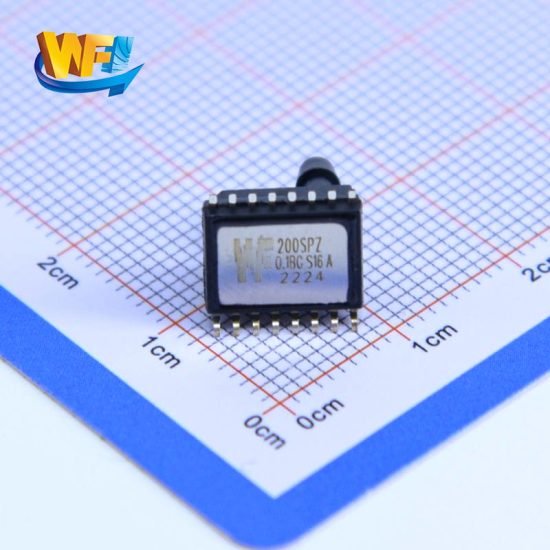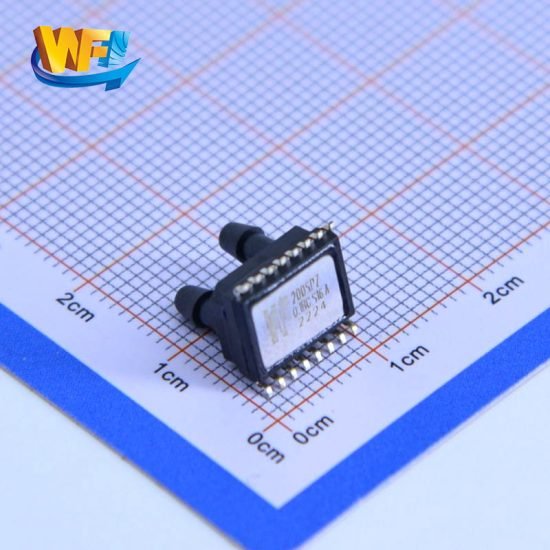Pressure control and measurement in the pharmaceutical industry is essential to ensure product quality, improve production efficiency and comply with industry standards. Especially in the pharmaceutical production process, accurate pressure measurement not only affects the stability of the production process, but also directly related to the safety and effectiveness of the product, differential pressure sensor as a device that can accurately measure the pressure difference, widely used in the pharmaceutical industry. Differential pressure sensors play an important role in monitoring pressure in filtration systems, controlling gas supply systems, and controlling pressure in reactors during the pharmaceutical process. By accurately measuring the pressure difference inside the equipment, they provide real-time, reliable data to help the production line adjust and optimize operational parameters, ensuring that the pharmaceutical production process meets strict quality control standards.
Բովանդակության աղյուսակ
1. Working Principle of Differential Pressure Sensor
The main function of a differential pressure sensor is to measure the pressure difference between two points. It is different from the traditional single-point pressure sensor in that instead of measuring a single pressure value, it measures the pressure difference between two different locations. Differential pressure sensors are usually composed of a sensing element, a signal conditioning circuit and an output interface. The principle of operation is to utilize piezoelectric effect, strain effect or capacitance effect to convert the pressure difference between two measurement points into an electrical signal, which is then converted and output. Through the precise processing of the signal, the differential pressure sensor is able to provide a very high accuracy of the pressure difference.
In the pharmaceutical industry, differential pressure sensors are used for accurate pressure monitoring in filtration, sterilization, and transportation. Especially in the filtration system, the differential pressure sensor is used to measure the pressure difference between the two ends of the filter to determine whether the filter needs to be replaced or cleaned. By monitoring the pressure change, the operator can take timely measures to avoid equipment failure and ensure the smoothness of the production process.
2. Application of Differential Pressure Sensors in the Pharmaceutical Industry
2.1 Filter system monitoring
- In the pharmaceutical industry, high-precision filters are often needed to remove impurities or bacteria from raw materials to ensure the purity and quality of drugs, and differential pressure sensors play a vital role in the filtration system. By measuring the pressure difference between the two ends of the filter, the differential pressure sensor is able to provide real-time feedback on the status of the filter. When the pressure difference is too large, it means that the pores inside the filter are clogged or the filtration efficiency has decreased, and the operator can replace or clean the filter accordingly. This not only improves the production efficiency, but also avoids the safety concerns in the production process.
2.2 Pressure Monitoring of Pharmaceutical Equipment
- In the production process of pharmaceuticals, many key equipments, such as reaction kettles, mixers, dryers, etc., need to maintain a certain working pressure. Differential pressure sensors are widely used in these equipments to monitor the pressure difference between the inside and outside of the equipments to ensure that the equipments are operating within the normal range. For example, in a reactor, a differential pressure sensor can measure the pressure difference between the inside and the outside of the reactor. By comparing the data, it can determine whether there is any over-pressure or under-pressure in the reactor, thus preventing production accidents caused by improper pressure.
2.3 Gas supply system control
- In many pharmaceutical production processes, gas supply is indispensable. For example, steam or gas is used as a medium in sterilization processes. In a gas supply system, differential pressure sensors help to accurately measure gas flow and pressure to ensure the stability and reliability of the gas supply system. By monitoring the pressure difference in real time, the operator can adjust the amount of gas supplied to avoid too high or too low a pressure that could lead to production failure or waste of resources.
2.4 Cleanrooms and Environmental Monitoring
- In the pharmaceutical industry, clean rooms are critical environments for drug production. To ensure the sterility of the production environment, clean rooms require strict control of parameters such as air flow, temperature and humidity, and differential pressure. Differential pressure sensors are used in this environment to measure the pressure difference between different areas. By monitoring the pressure difference between the inside and outside of the clean room, the differential pressure sensor ensures the direction of air flow and pressure stability inside the clean room, preventing contaminants from entering the production area and ensuring that the production environment meets the high standards required for pharmaceutical production.
3. Advantages of Differential Pressure Sensors in the Pharmaceutical Industry
3.1 High Accuracy and Stability
- Differential pressure sensors provide extremely high accuracy, often with a low margin of error, to ensure real-time, accurate feedback of differential pressure data during the pharmaceutical production process. Highly accurate pressure measurements not only help operators to keep track of equipment status, but also provide a reliable basis for subsequent data analysis. This is crucial for the pharmaceutical industry, especially in the highly demanding aseptic operation and quality control.
3.2. Improve production efficiency and safety
- Differential pressure sensors can help monitor the operating status of critical equipment and systems. Through real-time differential pressure data, signs of equipment abnormality or unstable operation can be detected in a timely manner. For example, clogging of filters, abnormal pressure in the reactor, etc. can be forewarned by the differential pressure sensor, avoiding production stoppages and safety hazards caused by equipment failure. Therefore, the differential pressure sensor not only improves the production efficiency, but also improves the safety and stability of the production process.
3.3. Extended equipment life
- By monitoring differential pressure data in real time, differential pressure sensors can help detect early signs of equipment failure. For example, if a filter is clogged or the pressure of other system components is abnormal, the operator can make timely adjustments to the operation based on the monitoring data, thus extending the life of the equipment and reducing maintenance costs. Effective management of equipment not only improves production continuity, but also reduces production costs.
3.4 Compliance with strict industry standards
- The pharmaceutical industry is subject to stringent regulations, such as GMP (Good Manufacturing Practices) and FDA (Food and Drug Administration) standards, which have clear requirements for the environment, equipment and quality of pharmaceutical production. Differential pressure sensors help pharmaceutical companies ensure compliance with these standards at every stage of the production process by providing accurate differential pressure data. For example, differential pressure monitoring helps ensure the effectiveness of filtration systems, the safe operation of reactors, and the control of differential pressure in clean rooms to comply with GMP and FDA requirements.
3.5 Adaptation to various working conditions
- Differential pressure sensors are widely used in the pharmaceutical industry for a variety of working conditions. Whether in high temperature, low temperature, corrosive environments or places with very high hygiene requirements, differential pressure sensors are able to operate stably. Especially in extreme conditions, the high reliability and durability of differential pressure sensors make them the ideal choice.
4. Selection and Maintenance of Differential Pressure Sensors
When selecting a differential pressure sensor, a number of factors need to be considered, including measurement range, accuracy, material and applicable environment. Different application scenarios have different requirements for sensors, so the selection must be matched to the actual needs. For example, for high-temperature or highly corrosive environments, differential pressure sensors made of high-temperature or corrosion-resistant materials should be used. For extremely high-precision measurements, a differential pressure sensor with higher accuracy should be selected.
Maintenance of the differential pressure sensor is equally important. Regular calibration and inspection of differential pressure sensors will ensure their long-term stability. Particularly in the pharmaceutical industry, due to the stringent environmental requirements, regular maintenance and calibration of the equipment is necessary to ensure the quality of the product, and cleaning and function checking of the sensors is a key part of the maintenance process to ensure that the equipment is not contaminated and is working properly.
Եզրափակում
In conclusion, differential pressure sensors, as a high-precision measurement tool, are widely used in the pharmaceutical industry for pressure monitoring in various segments. They play an important role in filtration system monitoring, equipment pressure monitoring, gas supply control, and clean room environment control. By measuring pressure differences in real time, differential pressure sensors help pharmaceutical companies improve production efficiency, ensure product quality, extend equipment life, and meet industry standards. As technology advances, differential pressure sensors will continue to play an even more important role in the pharmaceutical industry, driving the industry toward greater intelligence, refinement and efficiency.



